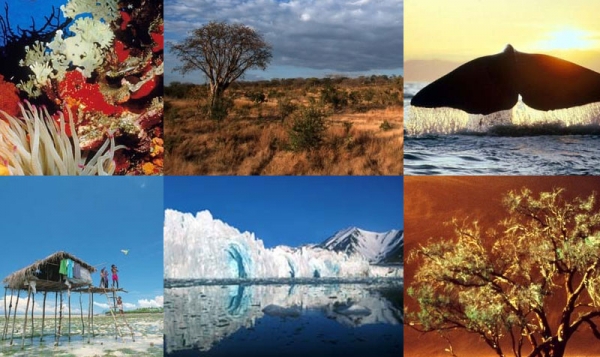Goal 15: Sustainably manage forests, combat desertification, halt and reverse land degradation, halt biodiversity loss

Forests cover 30 per cent of the Earth’s surface and in addition to providing food security and shelter, forests are key to combating climate change, protecting biodiversity and the homes of the indigenous population. Thirteen million hectares of forests are being lost every year while the persistent degradation of drylands has led to the desertification of 3.6 billion hectares.
Deforestation and desertification – caused by human activities and climate change – pose major challenges to sustainable development and have affected the lives and livelihoods of millions of people in the fight against poverty. Efforts are being made to manage forests and combat desertification.
FACTS AND FIGURES
Forests
- Around 1.6 billion people depend on forests for their livelihood. This includes some 70 million indigenous people
- Forests are home to more than 80 per cent of all terrestrial species of animals, plants and insects
Desertification
- 2.6 billion people depend directly on agriculture, but 52 per cent of the land used for agriculture is moderately or severely affected by soil degradation
- As of 2008, land degradation affected 1.5 billion people globally
- Arable land loss is estimated at 30 to 35 times the historical rate
- Due to drought and desertification each year 12 million hectares are lost (23 hectares per minute), where 20 million tons of grain could have been grown
- 74 per cent of the poor are directly affected by land degradation globally
Biodiversity
- Of the 8,300 animal breeds known, 8 per cent are extinct and 22 per cent are at risk of extinction
- Of the over 80,000 tree species, less than 1 per cent have been studied for potential use
- Fish provide 20 per cent of animal protein to about 3 billion people. Only ten species provide about 30 per cent of marine capture fisheries and ten species provide about 50 per cent of aquaculture production
- Over 80 per cent of the human diet is provided by plants. Only three cereal crops – rice, maize and wheat – provide 60 per cent of energy intake
- As many as 80 per cent of people living in rural areas in developing countries rely on traditional plant-‐based medicines for basic
healthcare - Micro-organisms and invertebrates are key to ecosystem services, but their contributions are still poorly known and rarely acknowledged

Facebook comments